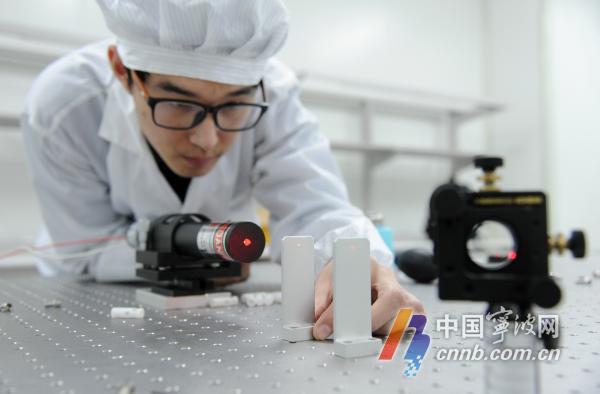Ningbo unveils ambitious policies to fuel economic growth


A R&D staff member in a lab based in Ningbo, East China's Zhejiang province. [Photo/cnnb.com.cn]
The government of Ningbo, Zhejiang province, unveiled a package of new policies designed to propel local economic growth during a press conference on March 6.
The policies outline a substantial allocation of 106.6 billion yuan ($14.81 billion) to fortify the development of eight key realms, including effective investment, technological innovation, advanced manufacturing, rural vitalization, integrated urban-rural development, and enhancement of the livelihood of citizens. Additionally, the city is committed to ensuring a robust supply of financial resources, natural assets, energy, and talent to support the advancement in these critical domains.
The local government has established specific targets, including adding 1 billion yuan in industrial funds, procuring 450 billion yuan in domestic and foreign currency loans, providing over 60,000 mu (4,000 hectares) of State-owned construction land, and guaranteeing a supply of over 4 million metric tons of standard coal for new major projects.
Compared to previous years, this year's policy updates emphasize cultivating new quality productive forces and venturing into innovative avenues.
To expand investments, Ningbo will provide a subsidy of up to 20 million yuan, not exceeding 15 percent of the actual investment total, to a landmark project in the city's key industries. Concurrently, the city is expediting the formulation of detailed implementation rules for public-private partnerships (PPP), accelerating the establishment of mechanisms for private capital participation in major projects, and enhancing the channels for the entry and exit of private capital.
The new policies are poised to deliver tangible benefits to local companies. For instance, rewards will be provided to companies honored as national-level intelligent manufacturing models or recognized nationally for developing intelligent manufacturing scenarios, as part of the city's push to boost the development of advanced manufacturing clusters.
In a bid to construct a high-level innovative city, Ningbo will leverage policy incentives to guide enterprises in accelerating technological breakthroughs and overcoming key bottleneck technologies in industrial chains. Specifically, the authorities will fully implement preferential tax policies to encourage innovation among businesses. Above-designated-size enterprises with annual R&D expenses exceeding 2 million yuan, accounting for over 3 percent of operating income, will be eligible for a maximum subsidy of 3 million yuan.
Efforts will also be put in place to ensure the effectiveness of policy implementation and streamline application and redemption processes related to these policies.
MOST POPULAR
- 1 China Daily's 'Shopping in China' platform appeals to intl audiences
- 2 China updates Catalogue of Encouraged Industries for Foreign Investment
- 3 Policies concerning expats, foreign enterprises in December 2025
- 4 China becomes the world's fourth manufacturing power
- 5 China ascends global higher education ranking







